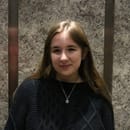Only six years after relocating to Greenbelt for her job at NASA’s Goddard Space Flight Center, Kristen Weaver decided to run for the Greenbelt City Council.
Weaver moved to Greenbelt in 2015 to be closer to her work as a deputy coordinator for a project called the Global Learning and Observations to Benefit the Environment program, where she works to expand the outreach of citizen science and science education programs.
Soon after moving to Greenbelt, Weaver began attending city council work sessions to track the planning of the walking path near her house. Weaver continued to get more involved in local groups in Greenbelt, joining the Homeowner’s Association Activities Committee and the Greenbelt Hot Composting Group.
According to Weaver, working alongside her neighbors in these local groups not only gave her a greater sense of neighborhood pride, but it also gave her a sense of the issues facing Greenbelt.
“I think that’s really key as a public official, or prospective public official, is to get other people’s perspective because they will see things based on where they live and what is happening in their lives that I might not see,” Weaver said.
In 2018, Weaver was nominated for the Park and Recreation Advisory Board where she was able to advise and give recommendations to the Greenbelt City Council. During her time on the Park and Recreation Advisory Board, Weaver pushed for the inclusion of 27,000 square feet of interior recreation space in the Beltway Plaza Mall redevelopment.
Working with these community groups and learning more about the issues facing Greenbelt inspired Weaver to run for the city council.
“I eventually realized that I wanted to not just have a voice as a resident, but as a council member,” Weaver said. “I want to be able to do more about the issues that I care about, than just speaking up but actually try to take action.”
Weaver said her campaign is centered on four main issues: economic recovery, equity in local government, reducing Greenbelt’s carbon footprint and expanding recreation opportunities across Greenbelt.
To support Greenbelt’s economic recovery, Weaver believes the city should increase aid to local small businesses.
“We want people to want to stay and be able to stay in Greenbelt, whether that’s, you know, an individual or business,” Weaver said. “I think some of it is the monetary support that we can provide, but I think some of it also needs to be helping [small businesses] work through challenges that may not be completely monetary.”
To increase equity in Greenbelt’s local government, Weaver proposed a hybrid system that might allow the Greenbelt City Council to better reflect the diversity of its constituents. Weaver suggests the council consist of members elected at large and members elected to represent Central Greenbelt, Greenbelt West and Greenbelt East.
Greenbelt resident Mary Larkin explained the divisions in the town.
“We’ve got this whole other part of Greenbelt that’s outside of Old Greenbelt. And it’s been slow for them to be recognized,” Larkin said. “I think as far as meeting the needs of that part of our greater Greenbelt community and certainly more minority representation on the council because we’re a very diverse community.”
Weaver became more aware of the equity issues in Greenbelt during her work with Connecting Across Greenbelt. The organization’s mission is to reach out to all the members of Greenbelt and strengthen the Greenbelt community.
Reducing Greenbelt’s carbon footprint is a crucial issue for Weaver, and she believes her background in science will assist her as she creates and implements new environmental policies in Greenbelt.
“I think that climate change is a big issue. And there are things that we can do to reduce our carbon footprint,” Weaver said, “Greenbelt is small in the grand scheme of things, but we should still do as much as we can.”
Weaver said she plans to improve amenities and recreation opportunities across Greenbelt, having noticed the disparities between Central Greenbelt, Greenbelt West and Greenbelt East.
“Giving people access to recreation facilities, whether that’s kids or adults is really important,” Weaver said, “A lot of people may not have a yard they can play in if they live in their apartment, so they need a park that they can go to. I think having a facility for organized programs for kids or afterschool programs and summer camps and things like that is important for quality of life.”
For Weaver, being a city council member means listening to members of the community and working hard to serve them.
“I am dedicated to doing the best job I can and that means listening, collecting the data, being thoughtful about making decisions and being willing to change my mind when presented with new information and compelling arguments,” Weaver said.


